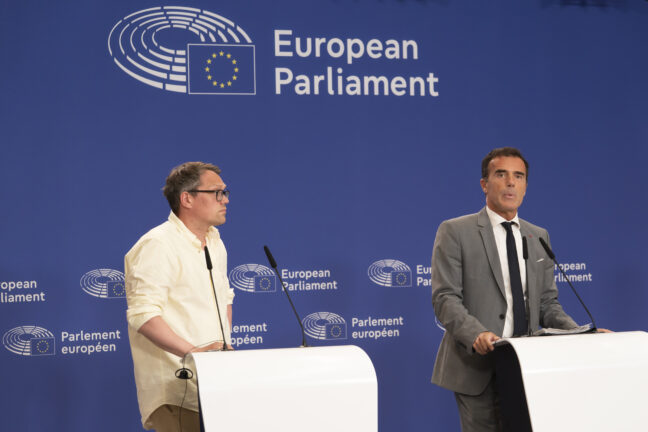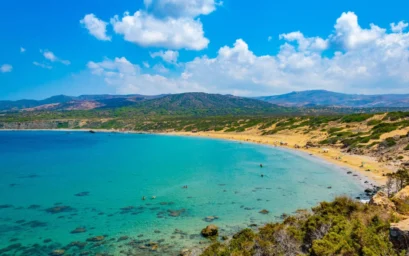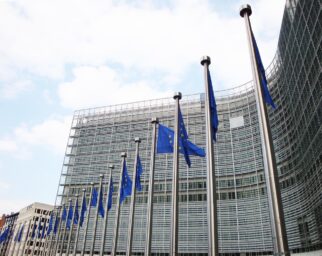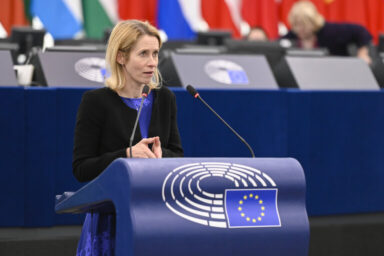MEPs Sandro Gozi (Renew/FR) and Tiemo Wölken (S&D/DE), co-rapporteurs for the Green Claims Directive, appeared in a special press conference on Tuesday. They expressed their profound frustration regarding the recent shelving of the proposal by the European Commission.
The co-rapporteurs outlined key arguments that criticised the Commission’s decision. They also highlighted the potential repercussions for consumers and sustainable businesses across Europe.
The Green Claims Directive aimed to protect consumers from misleading claims related to product sustainability and to ensure fair competition for genuinely sustainable businesses. The legislative negotiations had commenced in January, with initial meetings yielding promising progress.
No veto power
Mr Gozi, who hails from Italy but was elected to his parliamentary seat in France, noted, “A few hours before the third, potentially decisive meeting, the President of the Council decided to cancel it.” This abrupt cancellation followed a coordinated effort by three political groups—the European People’s Party (EPP), the European Conservatives and Reformists (ECR), and the far-right Patriots for Europe (PfE)—to urge the Commission to withdraw the proposal.
Both MEPs articulated that the Commission’s decision was not just unexpected but fundamentally flawed. The Italian Renew member emphasised, “The Commission has no veto power during the legislative procedure,” insisting that it is duty-bound to remain impartial and independent.
You might be interested
The Commission has no veto power during the legislative procedure. – MEP Sandro Gozi, co-rapporteur for the Green Claims Directive
The unprecedented move raised questions about the Commission’s motivations, both rapporteurs said. They alleged undue influence from right-wing political factions.
Microenterprise exemptions
A significant point of contention revolved around the issue of microenterprises. Mr Gozi highlighted that the EPP, ECR, and PoE factions asserted their opposition to the directive due to concerns that microenterprises would not be exempt from its scope. “Italy changed its position,” he remarked, referring to the surprising shift in stance from the Italian government, which opted to support the exemption of microenterprises.
Mr Gozi remarked, “Our mandate… says that we have to obtain the exemption of microenterprises,” indicating that the Commission’s statement seemed inconsistent with the agreed-upon provisions. Mr Wölken echoed the sentiment, characterising the situation as a “lost opportunity” for European consumers and truly sustainable companies. He stated that the Green Claims Directive would have served as a safeguard against misleading product claims while ensuring fair market conditions for environmentally conscious businesses.
Criticism of the decision
“Today’s victims are European consumers and companies that are truly sustainable,” the German Socialist added, underlining the directive’s critical role in promoting transparency and accountability in consumer markets.
Both MEPs placed significant blame on Environment Commissioner Jessika Roswell and Commission President Ursula von der Leyen for the cancellation of negotiations. Mr Wölken asserted, “Only two days after EPP, ECR, and PfE sent a letter to the Commission demanding the withdrawal of the Green Claims Directive… the Commission spokesperson announced that they intended to withdraw it.” This sequence of events led Mr Wölken to question the timing and rationale behind the Commission’s withdrawal announcement, stating, “Is this a coincidence? I don’t think so.”
In their critique, both rapporteurs asserted that the Commission’s decision not only undermined its role as a neutral arbitrator between Parliament and member states but also compromised the integrity of the legislative process itself. Mr Gozi stated, “We don’t see why the EPP and the two other political groups try to stop the process,” articulating their confusion regarding the rationale behind the withdrawal.
Resolutions, not cancellations
Despite their criticism, both MEPs expressed a willingness to continue negotiations. Gozi proclaimed, “We are ready to resume at any time the negotiation with the Polish presidency or with the Danish presidency.” They emphasized that the best course of action was to convene discussions to resolve outstanding issues rather than cancel meetings.
Mr Wölken pointed out, “A balanced compromise was within reach,” suggesting that constructive dialogue could still yield positive outcomes.
A balanced compromise was within reach. – MEP Tiemo Wölken, co-rapporteur for the Green Claims Directive
He also urged the Commission to fulfill its constitutional role as a facilitator among various stakeholders, stating that it should serve as a bridge between the Parliament and member states, rather than an obstacle. This sentiment was echoed in Mr Gozi’s insistence that the Commission must uphold its duty to maintain impartiality and foster a cooperative environment in the legislative process.
Call for dialogue
By calling for continued dialogue and negotiation, both MEPs highlighted the necessity for a collaborative approach moving forward. The situation remains fluid, and the outcome of these discussions may yet determine the future direction of sustainability legislation within the EU.
Both rapporteurs claim they remain resilient in their commitment to strike a balance that reflects the interests of consumers, businesses, and the environment. They emphasised that the journey toward sustainable legislation is one that must continue.











